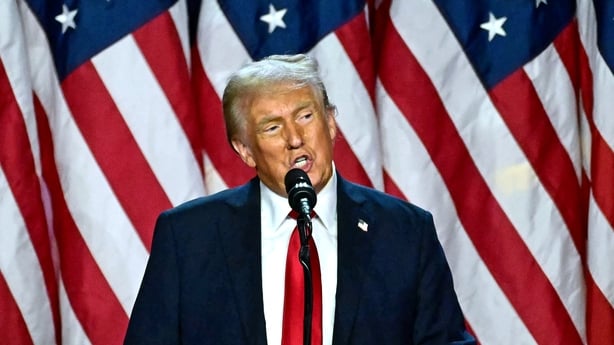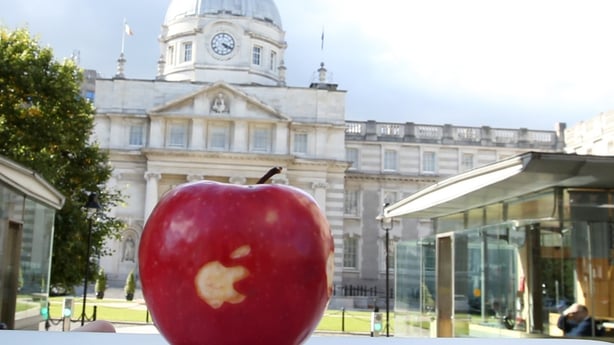The economy was a key issue in the US election. With voters going to the polls in Ireland on November 29, our Economics and Political Affairs Correspondent David Murphy looks at ten hot economic topics which are likely to come up during the campaign.
1 Housing: This overshadows everything. Political parties are putting forward their plans and targets for how many homes would be built if elected. Last year almost 33,000 homes were completed, which is far fewer than needed.
To address the housing shortfall and growth in the population, Ireland needs to build 70,000 homes annually over a decade, according to the Central Bank.
The effects of the housing deficit are evident across society: rising homelessness, rocketing house prices, adult children living with parents, sharing rental accommodation or trapped in long commutes.
2 Immigration: This is a hot political topic and a tricky one for parties to handle. Mainstream politicians will want to show they can control numbers while providing support to genuine refugees. At the same time, they won't want to create political space for the hard right.
The facts are that net migration is at a 17-year-high. Almost 150,000 people arrived in Ireland in the 12 months to April 2024. Nearly 70,000 left the country and there was a natural increase in the population of about 20,000.
It means there are almost 100,000 more residents in one year, which has implications for housing and services. People seeking international protection are in the minority. So far this year 14,000 have applied for asylum.
3 Trump: The outcome of the US election could have huge economic ramifications for Ireland. Donald Trump plans to cut US corporate tax from 21% to 15% - the same as the Irish rate - which would wipe out Ireland’s tax advantage.
He also wants to introduce tariffs on imports to the US from the EU. The Irish economy is heavily dependent on investment from multinationals.

The danger is not so much that a big player would pull out of Ireland, but that Trump’s administration could make it much more difficult for Ireland to win vital new investments.
4 Climate: Ireland is facing an EU fine of €8bn if it misses targets to reduce carbon emissions by 2030. While there has been progress there is still a long way to go to reduce reliance on fossil fuels. Decarbonising the economy requires huge reforms particularly in transport, industry and agriculture.
5 Jobs market: An extraordinary feature of the Irish economy is that the unemployment rate has barely budged despite the population increase. That shows there is very strong demand for labour. It is forecast to remain that way for at least the next two years. But there is no room for complacency.
6 Apple’s €14bn: This is a massive tranche of money that has landed in the State’s coffers despite the Government’s best efforts to say it is not entitled to the money. Expect promises about where it should be spent from politicians.
The obvious answer is to direct it all towards housing. But a drawback is that the number of workers in the construction industry has not increased for two years and there may not be the capacity to convert €14bn into more homes.

7 Infrastructure: Ireland needs to invest heavily in building homes, water, electricity and transport. These are all connected to the housing crisis and the broader economy.
8 Inflation: The cost of living is under control after the European Central Bank hiked rates. However, many on low incomes have been left struggling as they are still trying to make ends meet. While there have been increases in social welfare support, it is worth remembering prices have surged over recent years.
Inflation figures show the cost of goods and services have stopped rising rapidly. While energy prices are falling there is a long way to go and many other costs remain high.
9 Economy: The economy has been rapidly expanding. The ESRI forecasts the domestic economy will grow by 2.3% this year and 3% next. Broadly speaking, there has been growth since Ireland exited the bailout in 2013. How politicians propose to maintain that prosperity is the key issue for the election.
10 Debt: Ireland has one of the highest debt levels in the world at €42,000 per head.
Before the pandemic the country's debt was €203 billion. But spending during Covid-19 to keep the economy alive added to it and debt now stands at €223 billion.
While the economy is growing and the interest rate environment is benign, it is manageable. But if either were to deteriorate it could become a problem.







